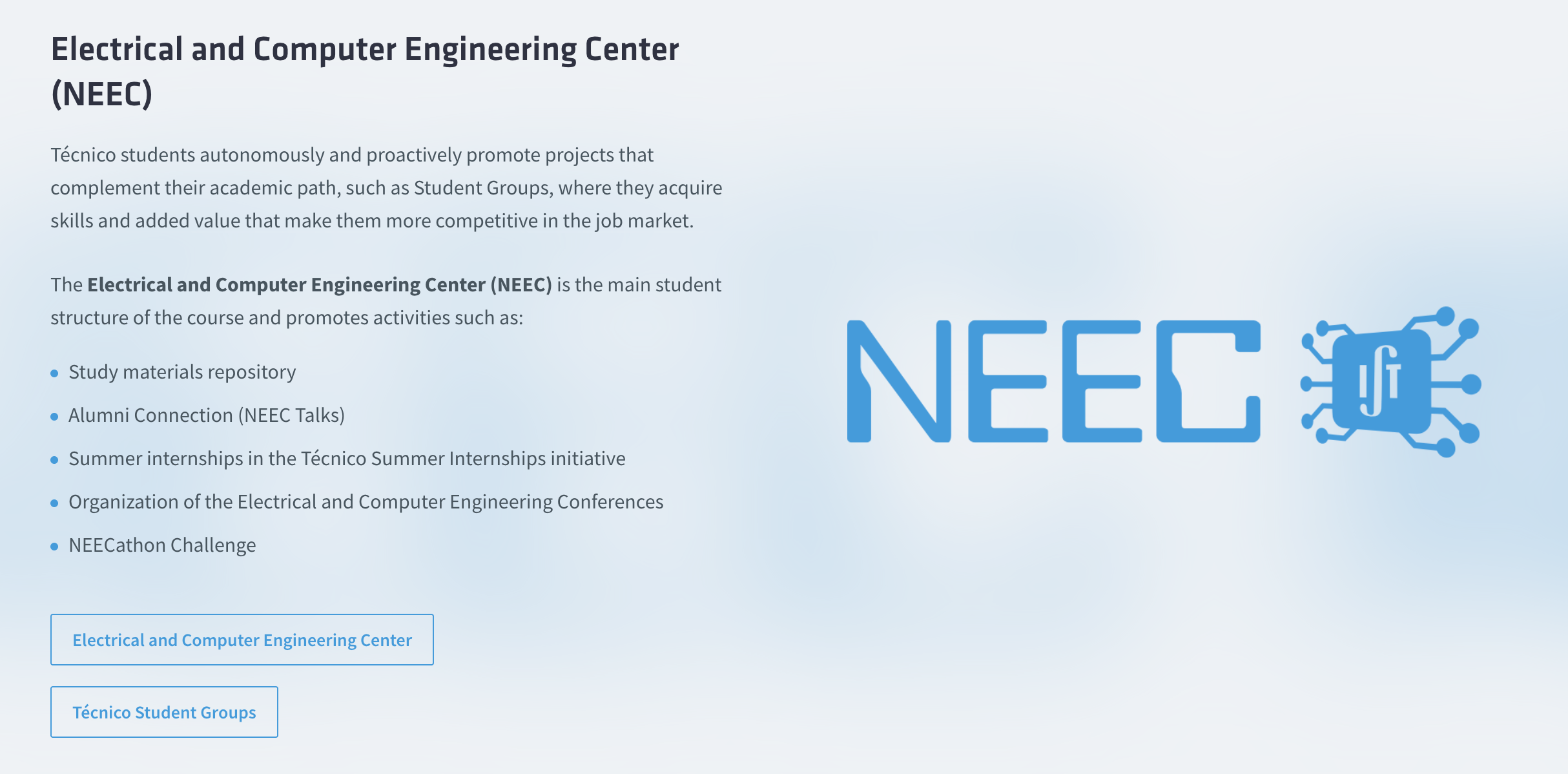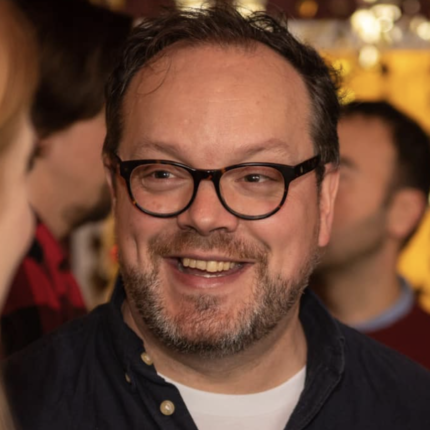Our hotel in Libson appears to be miles away from any restaurants or bars, but it just so happens to be opposite Técnico – the Higher Technical Institute of the University of Lisbon. Jim purports to have no idea how this happened.
Técnico’s big letters logo is interesting in and of itself because of the branding issue. The public and policymakers in the UK frequently struggle to recognise that large universities actually offer this kind of provision – but here Taxi drivers know exactly what the university’s faculty of engineering and technology does and why it’s important to students and Portugal’s economy.
We’re here on Day 0 of our Wonkhe SUs mini-study tour to Portugal, where today around 30 students’ union officers and staff from across the UK are making their way to the Portuguese capital of Lisbon for short trip aimed at building links with and learning from others representing and serving students – and as well as sampling custard tarts, Jim’s been trying to get at what[‘s going on educationally.

Back in 2018, Portugal’s higher education system came in for quite a bit of criticism from the OECD – overly theoretical teaching approaches, inflexible curricula oriented toward specific professions, inadequate institutional support for teaching innovation, and poor incorporation of practical skills needed in the workplace.
That criticism – along with the funding challenges that face all European systems trying to massify on tight budgets – triggered an ambitious reform programme with some fairly deep student input both as recipients of change and as coordinators of it on the various working groups.
The SU (of course there’s an SU for the faculty that looks after programme level associations, as well as university and city-wide bodies) ensured that structured interviews and surveys with current students and alumni were carried out, it staged debates and came to positions on key issues – and ended up with this impressive agenda for reform:
- A shared first year across programmes, allowing more foundational grounding before specialisation.
- Fewer concurrent modules, which they hoped would reduce overload and help manage their time and stress levels better.
- More active learning methods, encouraging hands-on, student-centred approaches over passive lectures.
- More curricular flexibility, including options for free electives and minors.
But there were also clear lines they didn’t want to cross:
- Teaching in English during the “first cycle” (ie UG/bachelor’s level) was largely unwelcome. While internationalisation was valued, students feared losing depth in learning and academic identity.
- Resistance to over-flexibility, expressing concern that too many choices might dilute the rigour and coherence of their degrees.
Crucially, they also prioritised an analysis of – and an attempt to shift – a culture they called the “meritocracy of difficulty.” There was pride in the school’s reputation for academic challenge – where hard work marked a route to success. But the culture of excellence also had a downside – a culture of overwork and presenteeism noty every student could reach, fairty rigid curricula, overly prescriptive content, and a narrow focus on theory and solving standardised, complex problems.
Students were also worried that the approach stifled independent thinking and creative problem-solving that their big programme-based associations – who tend to take a lead on careers work – were telling them were being demanded by employers.
Carry on CAMEPPing
So what became the CAMEPP project (Commission for the Analysis of the Teaching Model and Pedagogical Practices) sought to address all of that, all against a backdrop of funding pressures, demographic decline threatening enrolment, international competition for talent, and legislative changes ending integrated master’s degrees.
Técnico 2122 – delivered major structural changes – full adoption of the Bologna 3 (UG) +2 (PHT) model, the standardisation of modules into 3 or 6 ECTS units, dividing semesters into 8+2 week blocks, and hugely increasing curriculum flexibility and choice.
It moved away from lecture-dominated delivery to active learning, enhancing experimental training, and a whole bunch of shared science modules and integrated social sciences and humanities – all of the UG programmes include 9 ECTS credits (of the standard 180) in it because engineers need be equipped not just to build systems, but to understand the societies they shape:
It’s not just a question of what we teach, but how we shape the kind of engineer the world now needs.
Students argued that a broader curriculum would help with critical thinking, ethical awareness, and communication skills – helping graduates to go on to have social impact and experiences beyond the core areas of knowledge.

And, of course, enabling enrolment into some core social sciences and humanities is also helpfully efficient.
On that “meritocracy of difficulty” issue, the model now caps the weight of exams at 50 per cent of final grades – and it’s already the case that in Portugal, students tend to be able to have multiple attempts at summative assessment. The idea wasn’t to move away from excellence – but to actually help students achieve it.
The faculty also rationalised down to 18 undergraduate courses – the module choice within them actually represents hundreds of what the UK system would call “courses”, just without the ridiculous overhead and increasingly narrow “reduce all the choices” approach of the UK’s system as it makes cuts.
Even more interestingly, what we’d call academic societies have then been been supported to sit alongside each of the “courses” and lead on representation, social activity and even careers work – and so appear prominently on each of the main courses’ webpages like this:

As the UK continues to grapple with funding pressures, there’s a tendency to actually reduce module choice – but the evidence is mounting that students (and employers) are demanding more of it. As in Helsinki, students doing a specific “subject” probably do less of it each – but in a mass system, student leaders here have found ways to drive change that made the university more efficient, reduced a lot of the unnecessary “competitive pressure” and met students’ demands for breadth – all while boosting student-led belonging, careers and academic support
If nothing else, it ought to be food for thought for SUs thinking about how to position themselves as the cuts rain down – because having access to the working groups is one thing, having a positive and public agenda that students will support when in those groups is quite another.





















